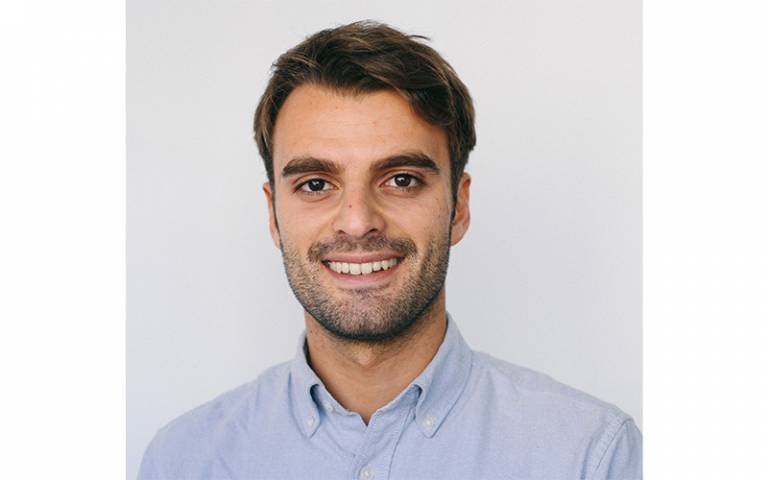Spotlight on Sustainable Resources: Economics, Policy and Transitions MSc graduate Gregorio Giorgi
24 June 2020
Read all about Gregorio's experience of the Sustainable Resources: Economics, Policy and Transitions (SREPT) MSc programme and how it prepared him for his current role.

What is your background?
Economics and Spanish (double major) from Whittier College in Los Angeles, CA
What have you been doing since graduating from Sustainable Resources: Economics, Policy and Transitions MSc?
I started working as an Associate at the Carbon Trust, a mission driven consultancy helping businesses, governments and organisations across the globe to transition to a sustainable, low-carbon future by reducing carbon emissions, achieving greater resource efficiency, and setting net-zero pathways.
How has your MSc helped you with your new career?
The Sustainable Resources MSc was helpful in developing a systems thinking approach to different sustainability challenges, a crucial skill for any professional in the field to find impactful solutions to the complex and interconnected reality of climate change. The MSc has also equipped me with a thorough understanding of the economics and policy principles necessary for the sustainable use of natural resources, as well as with an embedded awareness of the full life cycle implications of products and services. This knowledge combined with a critical thinking mindset developed during the course is certainly relevant and useful in my day-to-day. I'd say having had the opportunity to do my dissertation in collaboration with a third party (the European Bank for Reconstruction and Development) was the single most helpful experience I added to my CV.
Do you have any advice for future SREPT MSc graduates?
- Having a rough idea of which sustainability area you'd like to be involved in after the course can help you by making the most of the flexibility of the the MSc, which for the most part allows you to choose your own topic for courseworks and presentations, as well as of course for your dissertation.
- See the dissertation almost as an auto-biography, a piece of work you can be proud of. You will spend over four months on it, so try to write about something that you are passionate about, that you will want to talk about after the course. In my experience, the dissertation is the single most important part of the course that can make you stand out in job interviews and future working environments (even if they are in different fields/areas of sustainability).
- The MSc will provide you with useful frameworks and ways of approaching situations, not necessarily with textbook knowledge. It is really up to you how to make the most of these and learn from it.
 Close
Close

